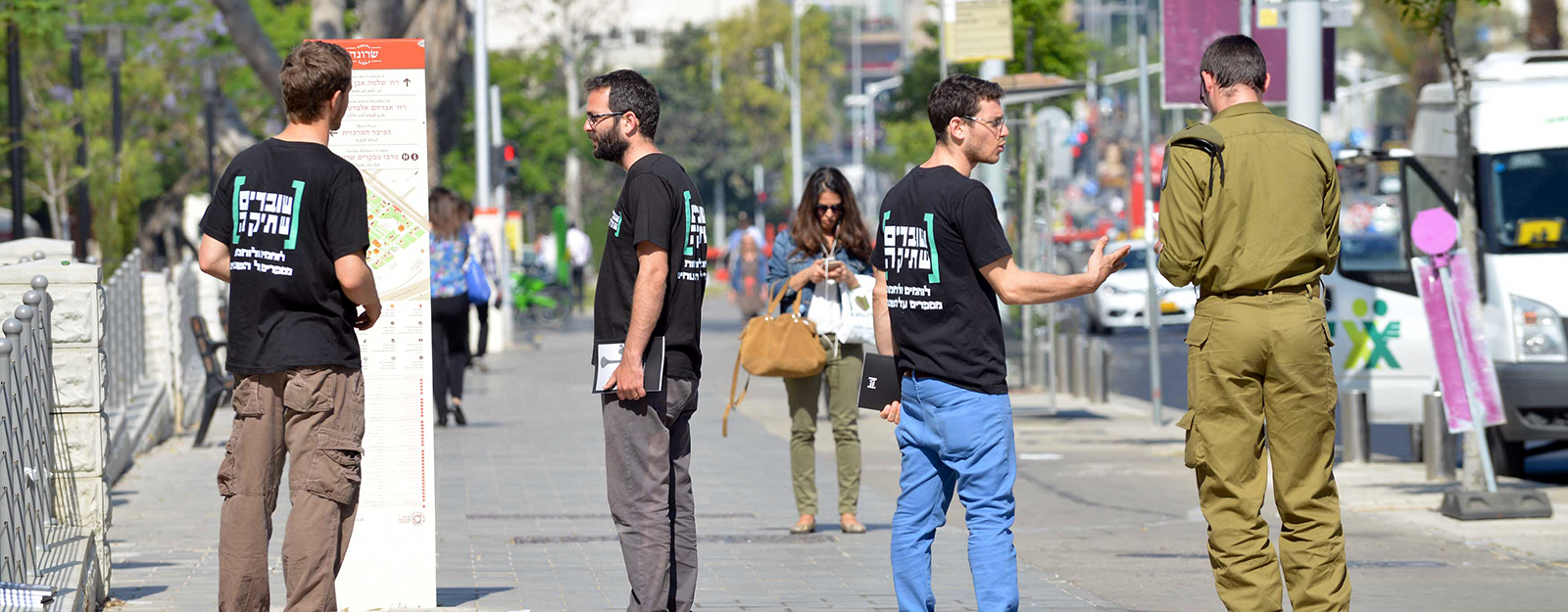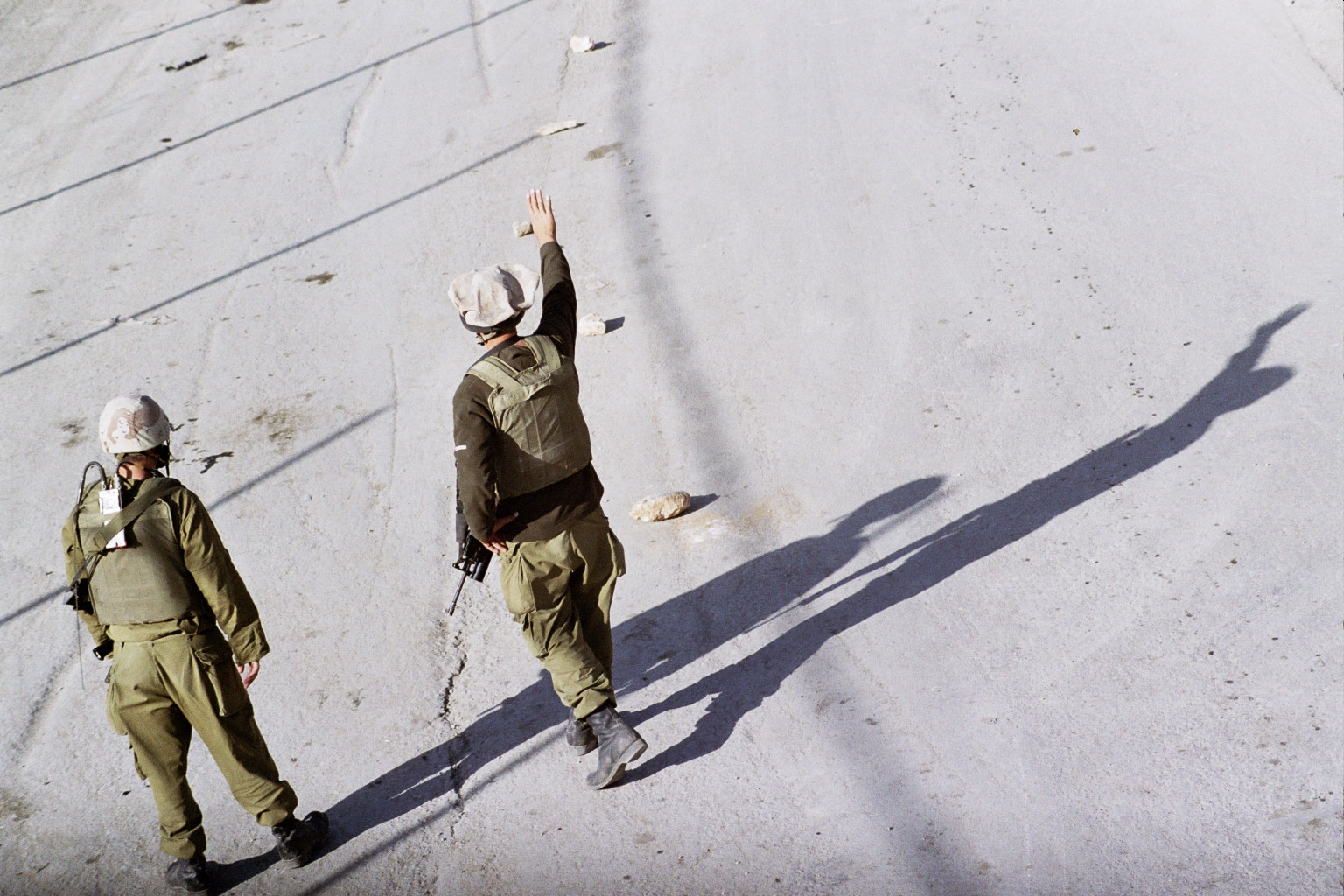Were the lookouts the ones who passed on the information? Yes. In the settlement we were in, it’s a shitty situation because the observation posts are civilian, it’s national service. They have an observation post operations room, but I don’t have the capacity to know what motivates their decisions. They always used to say, “He’s crossing a red line.” I don’t know what that red line is.
What’s the distance? I have no clue and I don’t know if they do. I never saw it written down anywhere. I talked about it with commanders that said, “yes, there’s a red line,” Civilian Security Coordinators (settlers in charge of the security of the settlement, appointed by the Ministry of Defense) – I assume they know, but they’re usually stricter about the red line. I decided for myself what the red lines of the settlement were, which were in accordance with the people that threatened the respective red line, and it was also common sense. When I saw that it was a shepherd 500 meters from the settlement, and the guy needed to pass through there to get to his village, it didn’t matter to me whether or not there was a red line. I saw the guy, made sure everything was okay.
Those were the distances? 500 meters from the settlement, and they already call you to distance someone? It was indeed very far. And I told the lookout, “You know that’s far, we’re not endangering anyone.” I always found some way to manipulate it, whether it was talking to the company commander, or just insisting myself. The company commander knows that a hazard won’t come from what the lookouts identify. He knows that if there’s a group of five people standing in some field, they won’t leave a powerful explosive device there to blow up the entire settlement. What we were really interested in were the roads. Molotov Cocktails on roads, stones [hurled at] roads. The hermetic guarding of the settlements – I felt it wasn’t the army’s objective; that it was the objective of the Civilian Security Coordinator and the settlers. They don’t want the Palestinians to get too close, they want to feel all the more secure – that’s logical. With the Civilian Security Coordinators – I had to kiss ass, to explain the situation to them. The relations with the Civilian Security Coordinator – you do joint drills, you see him all the time, he’s the Civilian Security Coordinator 24/7; he’s cool. One time we received a report, I was on a patrol so he came along, we disembarked together with him and started walking; we were much closer to the [Palestinian] village than to the settlement. There’s a stream that divides them. There were guys taking measurements for lands because they were setting up a terrace, Palestinians. I arrived, cleared these people, checked what they were doing. We spoke to them. I won’t distance them, we’re so far away, it’s ridiculous. I think he also knew that he was forbidden from conducting a clearance there, that he had deviated from his boundaries. But that’s their whole character; they [the Civilian Security Coordinators] really like to keep tensions high. I won’t tell them yes or no, it could be that ultimately one time out of 100 it will pay off that they’re constantly maintaining high tension - when something will really happen. On the other hand, sometimes it’s ridiculous. The company commander said that the Civilian Security Coordinator is the fourth team commander in the company. Because he has a Civilian Emergency Response Team – it’s 20 people.
Part of the company or part of the company command? More part of the command. If there’s an incident then he’s the star. He knows the settlement the best, he has Civilian Emergency Response Team that’s well trained, they train for it all the time, for an infiltration into the settlement. If there’s something like that then he’s an important figure that must be present. He knows the area better and he works in close cooperation with the company commander, when it’s in the settlement. They work together, look at maps together, delegate areas together. I think the spirit of things is that they would listen to him [the Civilian Security Coordinator]. If you don’t have a developed enough awareness then you won’t differentiate between them, you’ll think he’s one of us, that he obeys the same rules of engagement, because he speaks the same language – it’s confusing. They have an operations room, they have two-way radios, but they’re civilians. Meaning, they don’t have authority. Maybe he does as a Civilian Security Coordinator. I assume he has special authority. There were lots of drills with the Civilian Emergency Response Team and with the Civilian Security Coordinators.









 testimonies
testimonies  media & content
media & content 










 The company commander said that the Civilian Security Coordinator is the company’s fourth team commander
The company commander said that the Civilian Security Coordinator is the company’s fourth team commander 

 terms of use & privacy policy
terms of use & privacy policy